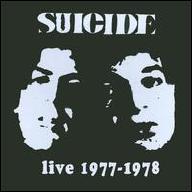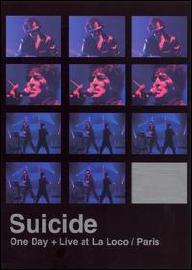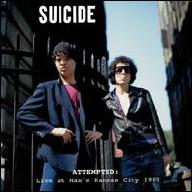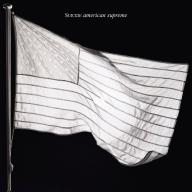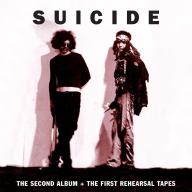Suicide had been a part of the performing arts scene in New York City's Lower East Side in the early/mid-'70s New York Dolls era. Their approach to music was simple: Rev would create minimalistic, spooky, hypnotic washes of dissonant keyboards and synthesizers, while Vega sang, ranted, and spat neo-Beat lyrics in a jumpy, disjointed fashion. On-stage, Vega became confrontational, often baiting the crowd into a riotous frenzy that occasionally led to full-blown violence, usually with the crowd attacking Vega. With their reputation as controversial performers solidified, what was lost was that Suicide recorded some amazingly seductive and terrifying music. A relationship with Cars mastermind Ric Ocasek proved successful, bringing their music to a wider audience and developing unlikely fans (Bruce Springsteen went on record as loving Suicide's Vietnam-vet saga "Frankie Teardrop"), but after numerous breakups and reconciliations, Rev and Vega settled for being more influential than commercially successful.
Ironically, the '90s proved to be a decade of vindication for Suicide with the rise of industrial dance music, Chicago's Wax Trax! label, and the bands associated with it (Revolting Cocks, Ministry, 1000 Homo DJs, etc.). Although not a big part of the scene after the late '90s, the profound influence of Suicide on a generation of younger bands was readily apparent. When Suicide returned in 2002 with American Supreme, their first studio release in ten years, much fanfare resulted, no doubt considerably furthered by Vega's presence around this time as a heavily profiled exhibitor of art in New York, where he had presented a show at the Jeffrey Dietch Gallery in New York earlier in the year. Vega also continued to appear on collaborative and solo recordings, including his album Station, which arrived in 2007, five years after Suicide's American Supreme. Vega died in 2016 in New York City at the age of 78. ~ John Dougan, Rovi



